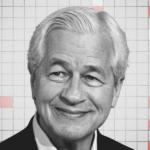Title: “”
Tags:
- Charlie Munger
- Berkshire Hathaway
- Investment Strategies
- Financial Wisdom
- Stock Market
- Long-Term Investing
- Wall Street
- Diversification
- Passive Income
- Real Estate
Warren Buffett, the legendary billionaire investor, is celebrated for his extraordinary financial acumen, which has led to substantial wealth accumulation over several decades. During the 2015 annual meeting of Berkshire Hathaway Inc., he shared valuable insights into the dynamics of discussing the company’s investments. Buffett explained why he refrains from promoting Berkshire’s investments, shedding light on the intricate world of investment strategies that may not align with the typical expectations of Wall Street.
In his candid remarks during the meeting, Buffett clarified his approach to Berkshire Hathaway’s investments, which deviates from the common expectation that they would want to advocate for these holdings. Contrary to this notion, Buffett emphasized that Berkshire Hathaway has no vested interest in encouraging others to invest in the same holdings it holds; rather, the company’s perspective is the opposite.

Buffett acknowledged the frequent inquiries about Berkshire Hathaway’s investments and why the company doesn’t actively promote them. He highlighted that Berkshire, either directly or through its subsidiaries, is likely to continue purchasing stock. This strategy aims to benefit from lower stock prices, rendering an early increase in stock value less desirable. The rationale behind this approach is simple: if the company plans to acquire more of a particular investment in the future, it would be counterproductive to publicly endorse the stock, thereby causing its value to rise prematurely. Such a move would essentially entail purchasing the asset at a higher price later, which runs counter to their long-term investment strategy.
Buffett acknowledged that this perspective diverges from conventional Wall Street wisdom, where owning a stock often means it’s in the investor’s best interest to witness a short-term rise in its value. This is sometimes referred to as “talking your book.”
For those looking to diversify their portfolios, options like fractional investing offer a way to introduce real estate without direct property ownership. This strategy aligns with Berkshire Hathaway’s emphasis on long-term value and presents a practical alternative for individuals interested in real estate investment. Now, it’s feasible to purchase shares of single-family rentals with as little as $100, allowing for passive income generation and long-term wealth building.
In a humorous moment during the meeting, Charlie Munger, Warren Buffett’s longtime business partner, provided a straightforward explanation for the difference between Berkshire’s approach and market expectations, remarking, “Warren, if people weren’t so often wrong, we wouldn’t be so rich.”
Buffett’s perspective on refraining from promoting investments provides a glimpse into the multifaceted realm of investment strategies. It serves as a reminder that investors have varying objectives, and the conventional wisdom of Wall Street doesn’t invariably apply to all approaches. Berkshire Hathaway’s unwavering commitment to long-term value consistently takes precedence over short-term market sentiment, even when contemplating investment opportunities beyond traditional stock holdings.









